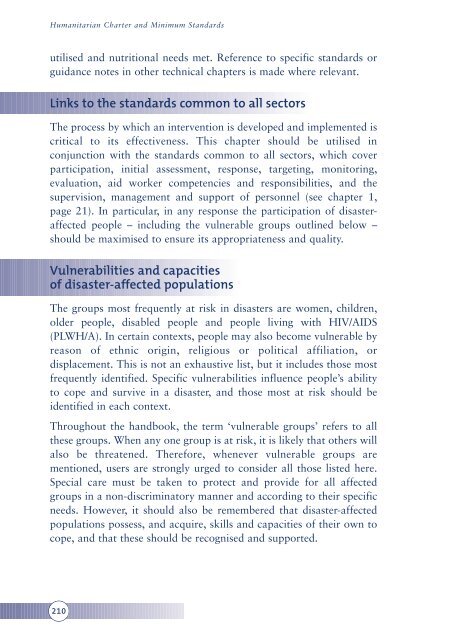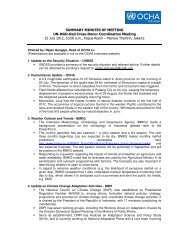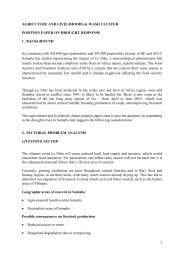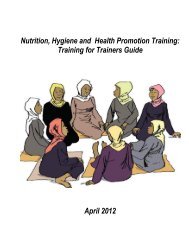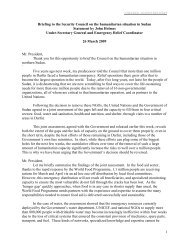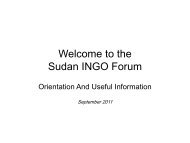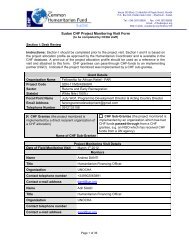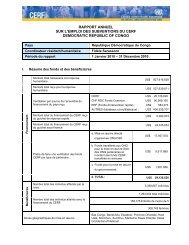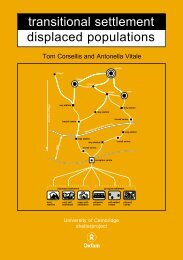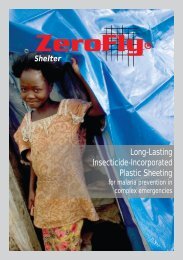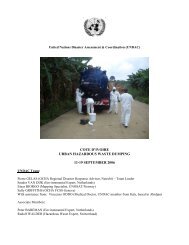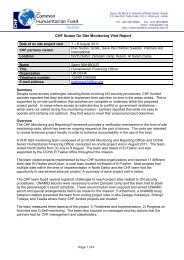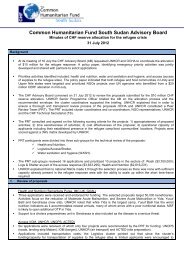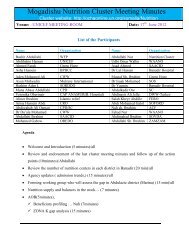Shelter - NFI SPHERE - OCHANet
Shelter - NFI SPHERE - OCHANet
Shelter - NFI SPHERE - OCHANet
Create successful ePaper yourself
Turn your PDF publications into a flip-book with our unique Google optimized e-Paper software.
Humanitarian Charter and Minimum Standards<br />
utilised and nutritional needs met. Reference to specific standards or<br />
guidance notes in other technical chapters is made where relevant.<br />
Links to the standards common to all sectors<br />
The process by which an intervention is developed and implemented is<br />
critical to its effectiveness. This chapter should be utilised in<br />
conjunction with the standards common to all sectors, which cover<br />
participation, initial assessment, response, targeting, monitoring,<br />
evaluation, aid worker competencies and responsibilities, and the<br />
supervision, management and support of personnel (see chapter 1,<br />
page 21). In particular, in any response the participation of disasteraffected<br />
people – including the vulnerable groups outlined below –<br />
should be maximised to ensure its appropriateness and quality.<br />
Vulnerabilities and capacities<br />
of disaster-affected populations<br />
The groups most frequently at risk in disasters are women, children,<br />
older people, disabled people and people living with HIV/AIDS<br />
(PLWH/A). In certain contexts, people may also become vulnerable by<br />
reason of ethnic origin, religious or political affiliation, or<br />
displacement. This is not an exhaustive list, but it includes those most<br />
frequently identified. Specific vulnerabilities influence people’s ability<br />
to cope and survive in a disaster, and those most at risk should be<br />
identified in each context.<br />
Throughout the handbook, the term ‘vulnerable groups’ refers to all<br />
these groups. When any one group is at risk, it is likely that others will<br />
also be threatened. Therefore, whenever vulnerable groups are<br />
mentioned, users are strongly urged to consider all those listed here.<br />
Special care must be taken to protect and provide for all affected<br />
groups in a non-discriminatory manner and according to their specific<br />
needs. However, it should also be remembered that disaster-affected<br />
populations possess, and acquire, skills and capacities of their own to<br />
cope, and that these should be recognised and supported.<br />
210


